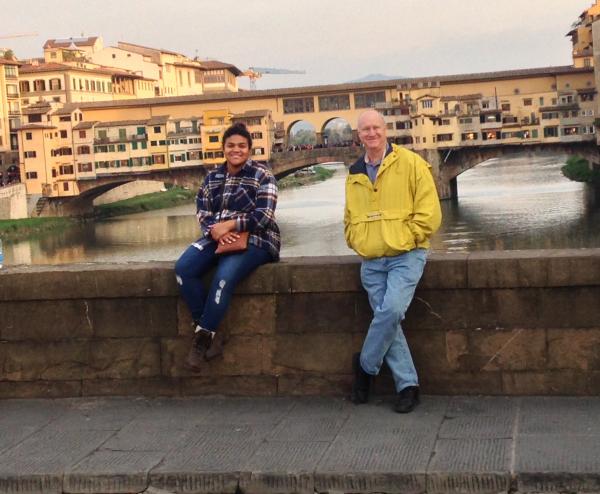About half a year ago I moved to Spain, on the type of personal journey that author Paulo Coelho teaches us about, mainly to convince myself that I was the Spaniard I always thought I was. Enrolled in a one-year work-study Master's program in Bilingual and Multicultural Education, I started the task of teaching English to pre-school children, as well as "American culture" to middle schoolers. Though well-versed in American culture, teaching was the most foreign of subjects to me.
Prior to the move, I had spent almost all my life convincing myself that I was not American; a 24/7 reinforcement job. I had travelled beyond the borders that birthed me and had constructed a shield to hold up to any stereotypes that could be arrowed my way.
No, no soy gringa.
Soy tica, Latina, española.
I had proof. My last name was irrefutable. However, I bore the first name that no true Latina or Española could ever pronounce. It never rolled off the tongue smoothly—just like my double rr’s, which I didn’t learn to master up until the age of 16 after singing Shakira and Juanes on repeat.
On my previous abroad journeys to visit family in Central America, I sat and studied the culture of how to cross a street in a different city, how to have a conversation at the check-out line in the grocery store, how to sit in the park, the appropriate times to wear jeans and shorts, and how to make the waiter laugh at the restaurant. While home, I associated myself with “true” natives and blasted reggaetón in Jersey suburbs and bought guava juice and corn tortillas from the “Mexican” part of town.
Moving to Spain was the final step; the last layer shed of my Americana half.
Making the move to Spain to authentically live up to my own last name was the final step in the reinforcement process; the last layer shed of my Americana half.
I had long heard and read about Spain; about my Basque heritage and the Spanish language. I had been called "the native" in Spanish languages. I was more than ready to metaphorically submerge myself into the Atlantic, and baptize myself into my new identity as a European intellectual. Though being accepted as Basque was far off in the galaxy of my expectations, passing as Spaniard was a mere flight in the stratosphere away.
The culture-shock that ensued was one within my own sense of self. My Latin-Spanglish accent was immediately detected here. Initially, a punch to the core of my ego. I was not expecting this. I was supposed to blend in.
In school, this blending-in became even more difficult as I was not to let on that I knew Spanish, masking completely the side of my identity that I clung to for so many years. Though it was a mask I did not wear well, I kept quiet when other teachers would tell the students that I didn’t understand them.
However, upon wearing the mask, I discovered something: I am American.
As 14-year-old Spanish children are flipping water bottles and pencil cases and dabbing uncontrollably, I find myself crusading through over-advanced lectures on the meaning of "culture"/"diversity"/"revolution"/"independence" (mind you, I am still a recent graduate of a very liberal arts school), and the pride that went unnoticed almost all of my life of being American—of the ability to speak the first recognized global language, English—comes roaring out.
Though my Latin-Spanglish accent has not changed drastically, not blending in is something I have fully embraced. My English is still as full of poise and vibrancy as it ever was. And my name did not change.
Add this article to your reading list




